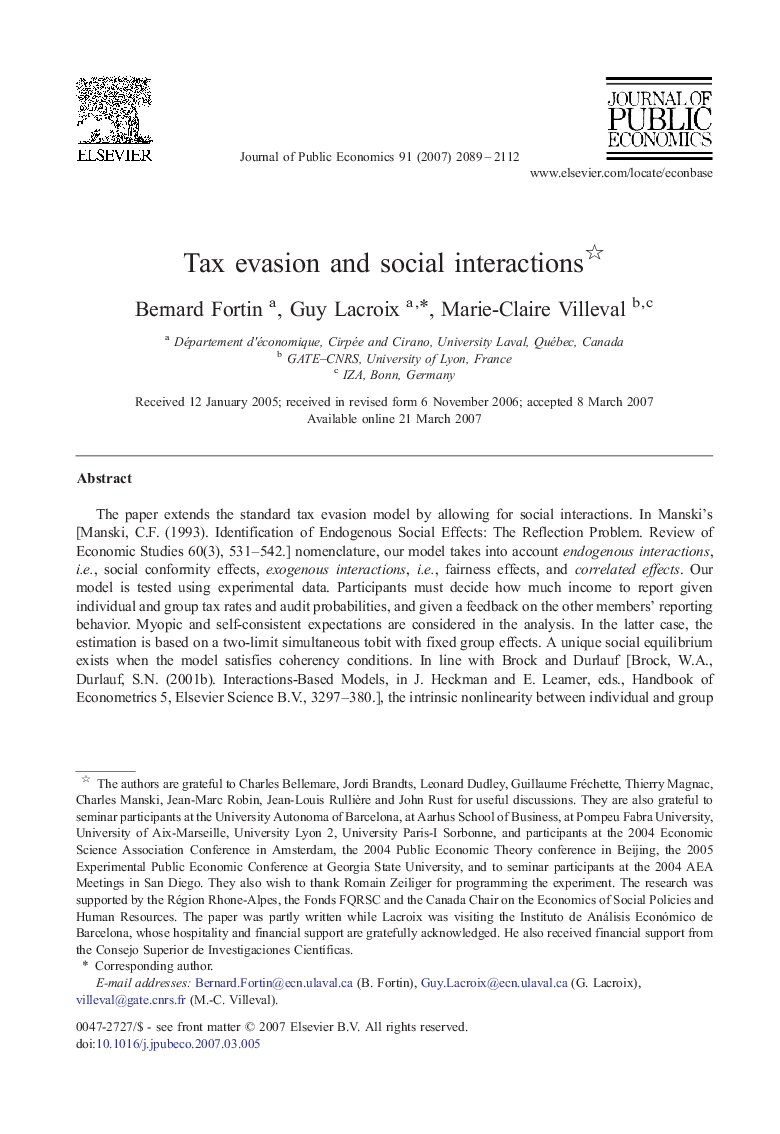| کد مقاله | کد نشریه | سال انتشار | مقاله انگلیسی | نسخه تمام متن |
|---|---|---|---|---|
| 970299 | 1479490 | 2007 | 24 صفحه PDF | دانلود رایگان |

The paper extends the standard tax evasion model by allowing for social interactions. In Manski's [Manski, C.F. (1993). Identification of Endogenous Social Effects: The Reflection Problem. Review of Economic Studies 60(3), 531–542.] nomenclature, our model takes into account endogenous interactions, i.e., social conformity effects, exogenous interactions, i.e., fairness effects, and correlated effects. Our model is tested using experimental data. Participants must decide how much income to report given individual and group tax rates and audit probabilities, and given a feedback on the other members' reporting behavior. Myopic and self-consistent expectations are considered in the analysis. In the latter case, the estimation is based on a two-limit simultaneous tobit with fixed group effects. A unique social equilibrium exists when the model satisfies coherency conditions. In line with Brock and Durlauf [Brock, W.A., Durlauf, S.N. (2001b). Interactions-Based Models, in J. Heckman and E. Leamer, eds., Handbook of Econometrics 5, Elsevier Science B.V., 3297–380.], the intrinsic nonlinearity between individual and group responses helps identify the model. Our results provide evidence of fairness effects but reject social conformity.
Journal: Journal of Public Economics - Volume 91, Issues 11–12, December 2007, Pages 2089–2112